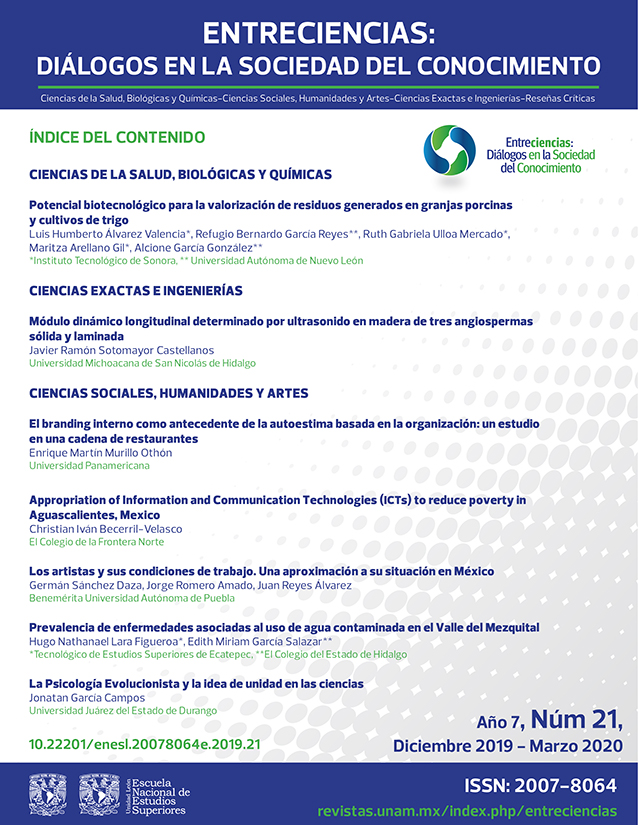The Evolutionary Psychology and the idea of the unity of sciences
Main Article Content
Abstract
Purpose: To critically evaluate one of the ideas of Evolutionary Psychology (EP), namely, the idea that with the architecture of the mind and the methodology of this kind of psychology, a theoretical bridge can be built between the natural sciences and the social sciences.
Methodology: Philosophy’s own method is followed.
Results: The idea of the unity of sciences originating from EP is problematic.
Limitations: In future studies, specific EP aspects must be evaluated to know its feasibility and it will be necessary to examine other theoretical projects that attempt the unity of science.
Main findings: EP’s attempt to unite the natural and social sciences is questioned because: 1) its vision of evolution is debatable, and 2) the current social studies about cognition are hardly compatible with EP.
Downloads
Article Details
Citas en Dimensions Service

Entreciencias: Diálogos en la Sociedad del Conocimiento recognizes and respects the moral rights of authors as well as ownership rights transferred in non-exclusivity to the journal for its open access dissemination and its preservation. Hence, authors who publish in this journal accept the following conditions:
- Entreciencias: Diálogos en la Sociedad del Conocimiento from Universidad Nacional Autónoma de México is distributed under a Licencia Creative Commons Atribución-NoComercial-SinDerivar 4.0 Internacional, which allows the information and metadata to be used without commercial ends as long as proper citation is utilized.
Authors will have the right to non-exclusively distribute the contribution made to Entreciencias: Diálogos en la Sociedad del Conocimiento. That is, they will be able to include it in an institutional repository or disseminate it in other digital or printed media as long as it is explicitly stated that it was first published in Entreciencias: Diálogos en la Sociedad del Conocimiento. The following information must additionally be included: author, year, volume, page numbers, electronic paging, and DOI.
Authors, whose publications have been accepted, will have to send the Letter of Copyright Transfer in the corresponding format, filled out and signed by the author or authors.
